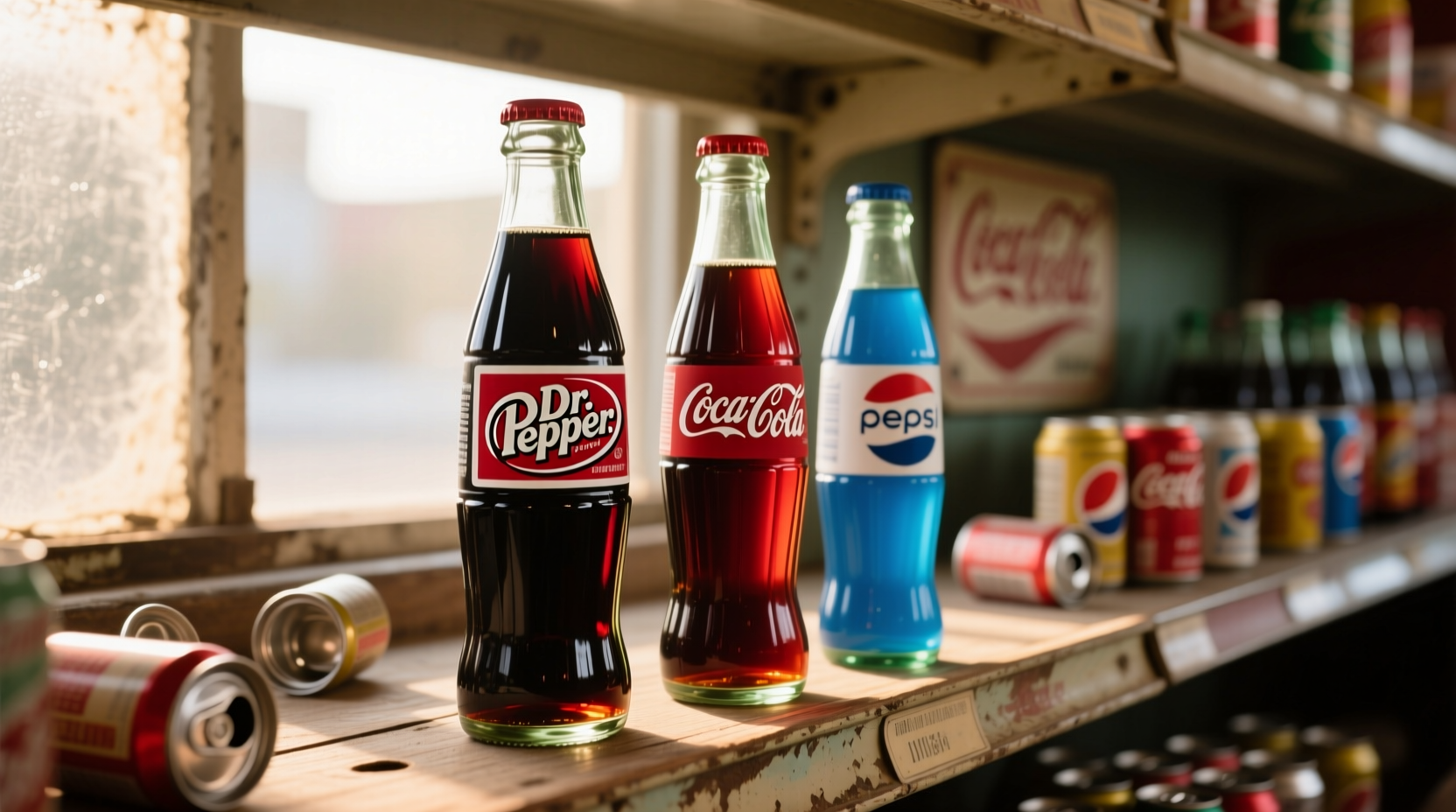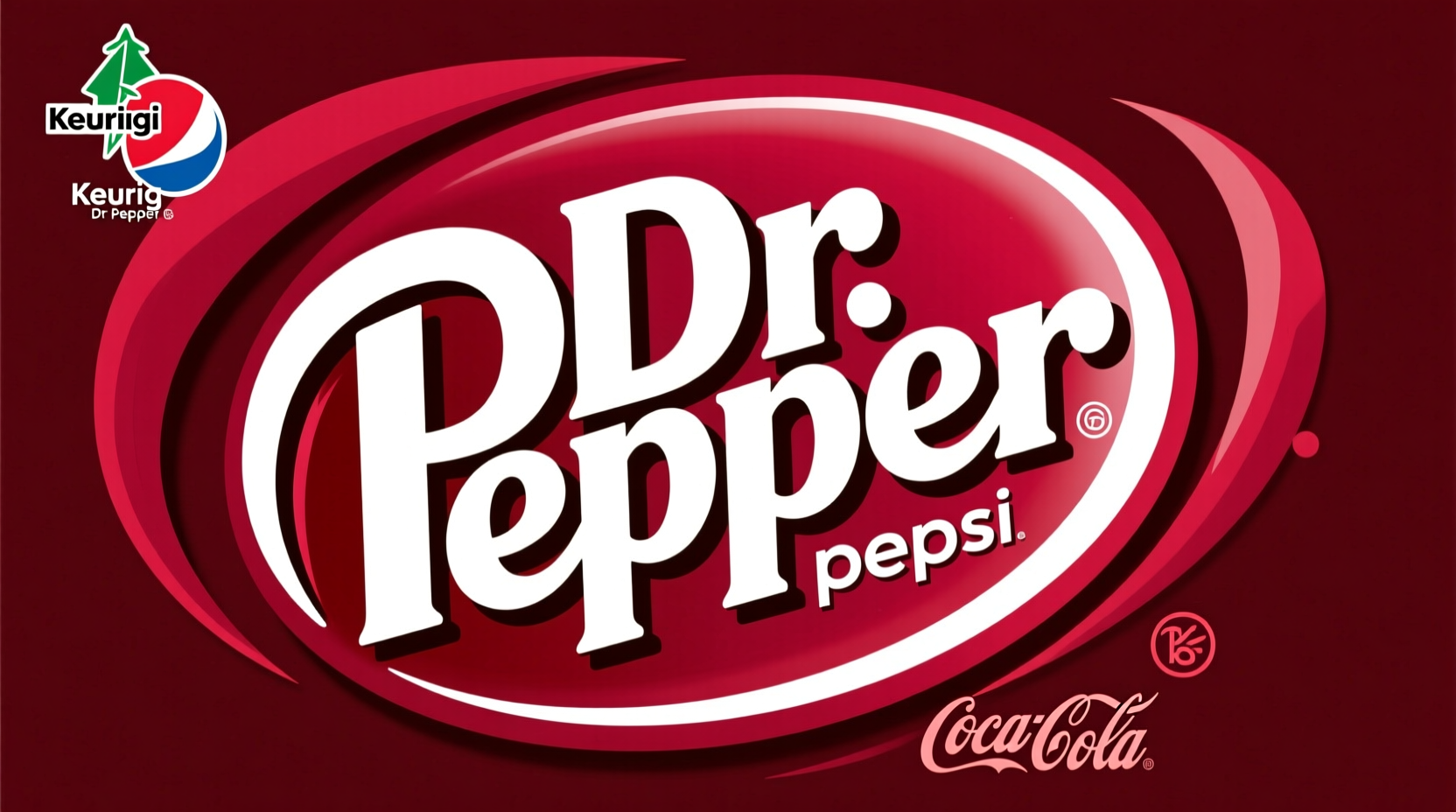Confusion about Dr. Pepper's corporate ownership is widespread. Many consumers assume all major soft drinks must belong to either The Coca-Cola Company or PepsiCo. This misconception stems from seeing Dr. Pepper sold alongside Coke and Pepsi products in stores and restaurants. Let's clarify the facts once and for all.
Why People Think Dr. Pepper Belongs to Coke or Pepsi
The confusion makes sense when you consider how beverage distribution works in America. Unlike most countries where brands handle their own distribution, the U.S. operates on a franchise bottler system. This means:
- Coca-Cola and Pepsi maintain their own extensive bottling networks
- Many regional bottlers distribute products from multiple companies
- Dr. Pepper often shares distribution channels with Coke or Pepsi products
- Retail coolers frequently display all three brands together
This shared distribution creates the illusion of common ownership, but the corporate structures remain completely separate.
Dr. Pepper Ownership Timeline: Key Milestones
| Year | Ownership Event | Significance |
|---|---|---|
| 1885 | Dr. Pepper created in Waco, Texas | First major soft drink developed in the U.S. South |
| 1923 | National distribution begins | Expanded beyond Texas through independent bottlers |
| 1978 | Dr Pepper Company formed | First independent corporate structure |
| 1986 | Merged with Seven Up to form DP/7UP Inc. | Created third major beverage player |
| 1995 | Cadbury Schweppes acquires DP/7UP | Became part of international conglomerate |
| 2008 | Dr Pepper Snapple Group spins off | Became independent public company (NYSE: DPS) |
| 2018 | Merged with Keurig Green Mountain | Formed Keurig Dr Pepper (NYSE: KDP) |
This historical timeline shows Dr. Pepper has maintained independence from both Coca-Cola and Pepsi throughout its 139-year history, despite various ownership changes.
How Beverage Distribution Actually Works in America
The U.S. beverage distribution system explains why Dr. Pepper appears alongside Coke and Pepsi products:
- Franchise bottler model - Regional bottlers purchase rights to distribute specific brands
- Multi-brand agreements - Many bottlers handle products from multiple companies
- Shared infrastructure - Delivery trucks often carry Coke, Pepsi, and Dr Pepper products
- Retail partnerships - Stores typically work with one primary beverage distributor
For example, a regional bottler might have agreements with Coca-Cola, PepsiCo, and Keurig Dr Pepper, explaining why all three appear together in stores. This system creates efficiency but fuels ownership confusion.
Keurig Dr Pepper's Current Structure
Today, Keurig Dr Pepper operates as the third-largest beverage company in North America. Key facts about KDP:
- Publicly traded on NYSE under ticker KDP
- Owns more than 50 beverage brands including Canada Dry, Snapple, and Mott's
- Major shareholders include JAB Holding Company (approximately 13%) and institutional investors
- Operates separate from both Coca-Cola (NYSE: KO) and PepsiCo (NASDAQ: PEP)
According to KDP's SEC filings, the company maintains completely independent ownership and operations from both beverage giants. The 2022 annual report confirms no ownership ties to either Coca-Cola or PepsiCo.
Why Dr. Pepper's Independence Matters
Being outside the Coke-Pepsi duopoly gives Dr. Pepper unique advantages:
- Product innovation freedom - Can develop flavors without corporate restrictions
- Flexible distribution - Can partner with any bottler without exclusivity conflicts
- Brand identity - Maintains distinct marketing approach focused on heritage
- Market position - Serves as a true alternative in the beverage aisle
This independence explains why Dr. Pepper has maintained its unique flavor profile and marketing identity for over a century while Coke and Pepsi have evolved their formulas multiple times.

Clearing Up Common Misconceptions
Several factors contribute to the ongoing confusion about Dr. Pepper's ownership:
- Shared coolers - Retail displays often group all major soft drinks together
- Similar packaging - Cans and bottles follow industry-standard designs
- Marketing partnerships - Occasionally co-promoted with Coke or Pepsi products
- Limited beverage knowledge - Most consumers don't track corporate ownership
However, corporate ownership records and SEC filings consistently show Dr. Pepper has never been owned by either Coca-Cola or PepsiCo. The Beverage Daily confirms Keurig Dr Pepper operates as a completely independent entity competing directly with both industry leaders.
What This Means for Consumers
Understanding Dr. Pepper's true ownership helps consumers recognize:
- The beverage market has more diversity than the Coke-Pepsi narrative suggests
- Independent brands can thrive through strategic distribution partnerships
- Purchasing decisions support different corporate structures than assumed
- Brand heritage and recipe consistency often stem from stable ownership
Next time you reach for a Dr Pepper, remember you're choosing a brand with a distinct corporate history separate from both beverage giants—a true independent in the soft drink world.











 浙公网安备
33010002000092号
浙公网安备
33010002000092号 浙B2-20120091-4
浙B2-20120091-4